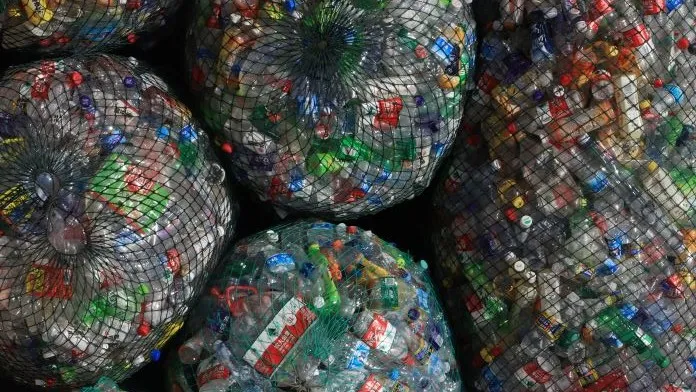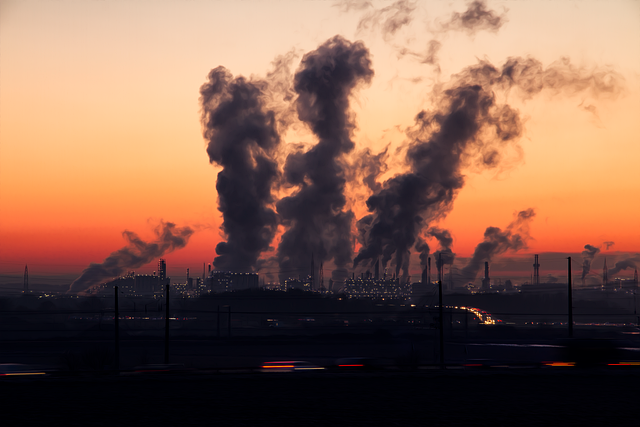Why Recycled Plastic Costs More—and What’s Killing Europe’s Circular Economy

The plastic recycling industry in Europe is struggling, some say it is in crisis. In 2023, output of mechanically recycled plastic fell by 7.8%. The total recycling capacity was 13.2 million tonnes corresponding to a 6% year-on-year growth rate in 2023 contrasting with the much higher growth rates of 17% and 10% in 2021 and 2022, respectively. Estimated industry turnover also shrank by 12.5% compared to 2022. Investment in the sector declined by 50% to 0.5 billion euros in 2023, down from 1 billion euros in 2022.
Cheap imported plastics are hitting the European market
The uncontrolled increase in imports of cheap plastics has damaged plastics recycling in Europe. There has been an increase in imports of both virgin plastics and plastics labelled as recycled, and both types of material have threatened Europe’s industries. Most of the plastics have come from Asia. Mainland China continues to dominate global growth in virgin plastics due to the expansion of their petrochemical industry and China is also one of the main exporters of recycled plastic to the EU together with Vietnam, Turkey and Egypt. There is also a suspicion that polymers labelled as recycled are in fact virgin plastics. Unfortunately, there are no effective verification and traceability measures in place to confirm the recycled status of these materials.
The price of virgin plastic is lower than recycled plastic
In Europe recycled plastics cost more than virgin equivalents. In February 2025, a tonne of recycled PET cost roughly $750 to $800 more than a tonne of virgin PET. The trend in price for both recycled and virgin plastics has been downward, with the price of recyclates dropping by around 50% in 2023 and not recovering in 2024. Polyethylene, polypropylene and polyvinyl are all traded as commodities and the price of all three virgin polymers is predicted to fall further during 2025. The current oversupply of virgin plastics has driven packaging manufacturers to use virgin plastic rather than recycled as a cost cutting measure.
Production costs for recycled plastic are higher in Europe
Countries exporting recycled plastics to Europe have several cost advantages. Many Asian exporters have cheaper labour and fewer environmental regulations than European recyclers. Add to that higher energy costs in Europe since Russia invaded Ukraine and the result is that European companies have higher production costs and overseas exporters can undercut them. The consequence has been a lack of demand for EU-recycled plastics.
Recycling plants are closing
A US nonprofit, The Last Beach Cleanup, that is working to combat plastic pollution, has been collecting data on plastic recycling plant closures in Europe and beyond. Eight mechanical recycling companies in the EU and three in the UK closed their plants since 2023 accounting for a loss of an estimated 0.4 million tonnes of capacity. This accounts for about 3% of the total European recycling capacity and one of the factors limiting growth of the industry. In the same period in the USA, six mechanical recycling plants closed. News of plant closures is hard to find, as often the projects are quietly cancelled. The difficult economic conditions are affecting both large and small companies. Veolia shut their PET recycling plant in Rostock, Germany at the end of 2023. In their press release they described how they had failed to create a closed loop for PET beverage bottles. They said they had not succeeded in securing long-term sales of recycled PET in collaboration with the beverage industry and/or grocery retailers, the “prerequisite for a closed PET loop”.
Consumer goods companies are reducing their sustainability goals
With cheaper virgin plastic so readily available FMCG companies like Coca-Cola and Nestlé are reducing their sustainability goals. In December 2024, Coca-Cola announced it has “evolved” its goals (a disappointing example of Greenrinsing) and now aims to add 30–35% recycled plastic in its bottles by 2035 and will partner to collect 70–75% of the equivalent number of bottles and cans produced annually. Yet in 2018, in their World Without Waste Initiative the company said it would use 50% recycled materials by 2030 and collect the equivalent of 100% of the bottles and cans it sold.
No agreement on UN Global Plastics Treaty
The need to get agreement on a UN Global Plastics Treaty to tackle plastic waste and boost recycling is now greater than ever. Unfortunately, the Intergovernmental Negotiating Committee failed to agree on a way forward at their fifth session in Busan, South Korea in December 2024. Several major oil-producing countries obstructed the deal. (Countries like Saudi Arabia are investing in the Chinese petrochemical industry as an alternative market for their petroleum to mitigate against the decline in sales of petrol-driven cars.) The UN negotiators failed to agree on a possible target for reducing the production of primary plastic polymers, on bans and restrictions of chemicals of concern in plastic products, extended producer responsibility and enhanced waste management.

Is plastic recycling a scam?
Some environmental organisations are now calling plastic recycling a scam, that the “circular economy of plastics is the greatest toxic greenwashing hoax in history”. Plastic manufacturers have promoted recycling as the solution to the world’s plastic pollution crisis whilst knowing that 90% of plastic is not recycled. They have successfully shifted the focus away from strategies like limiting virgin plastic production and switching to alternative materials, by promoting the illusion of recyclability. The financial cost of waste treatment has been pushed onto local municipalities and waste management companies, organisations that are financially the weakest link in the plastic supply chain.
Levelling the playing field with new packaging taxes and regulations
A range of regulatory and legislative changes need to be brought forward to protect the European plastic recycling industry including the use of plastic packaging taxes.
The UK government was the first European country to introduce a plastic packaging tax in April 2022. The tax applies to plastic packaging manufactured in or imported into the UK, which contains less than 30% recycled plastic. It covers packaging such as cartons and bottles, single-use plastic materials including shrink-wrap, moulded polystyrene foam and bin bags, as well as reusable products including plastic pallets, crates and plastic strapping. Businesses that manufacture or import ten or more tonnes of finished plastic packaging in a 12-month period are required to register for the tax.
There is criticism of the low rate of the UK plastic packaging tax. It was set at £210.82 per tonne, then increased to £217.85 in 2024 and will be £223.69 per tonne from April 2025. However, the tax is so low that buyers simply pay the tax and use virgin plastic (PET) because overall it is cheaper than using recycled plastic.
Some EU countries are also bringing in packaging taxes. Spain brought in a tax on non-reusable plastic packaging in January 2023 and it covers both the production and importation of non-reusable plastic packaging. Unlike the UK, there is no threshold of recycled content to determine if the product is taxable. The tax rate is also nearly double that in the UK at €0.45 per kilogram (equivalent to €450 per tonne) of non-recycled plastic packaging. However, both Germany and Italy have pushed back the implementation of their plastic packaging taxes to allow their governments more time to devise efficient and easily administered schemes.
Many countries in the EU are also introducing Extended Producer Responsibility laws that assign responsibility for meeting recycling targets to packaging producers and some places have Deposit Return Schemes for plastic bottles to improve the collection and sorting of plastic waste.
Conclusion
There are many commercial barriers impacting the European plastics recycling industry. With so many geopolitical headwinds, the European Recycling Industries’ Confederation (EuRIC) has proposed that the solution lies within the EU and that the recycled content targets must be met using post-consumer plastic packaging waste collected within the EU. Another benefit of this strategy would be to help counter the ongoing uncertainty generated by the Trump administration’s tariffs, which could disrupt the markets for both virgin and recycled plastics.
If you are seeking mitigation strategies for any of these issues, Strategic Allies Ltd is dedicated to collaborating with you to find solutions for your business. We can perform a deep dive into the core of an issue, to gain a comprehensive understanding of the complexities of a market, enabling us to identify business opportunities and barriers to success. If you want to know what the market thinks, we can carry out a Voice of Customer (VoC) survey to capture valuable feedback. If you are interested in exploring how we can support you, please reach out to John Allies at john@strategicallies.co.uk for an initial conversation.